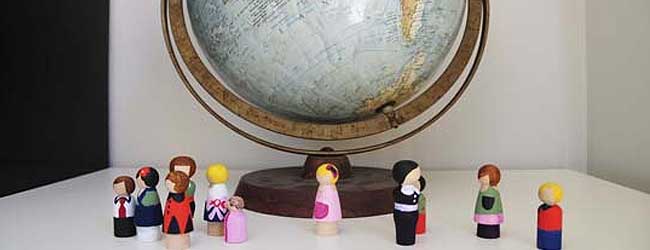With a decent chunk of attendees and speakers absent due to the volcanic ash cloud over Europe, Doc Searls stepped in for conference founder Lee Dryburgh to kick off eComm 2010 at the San Francisco Airport Marriott Hotel this morning.
“If the U.S. was in Europe, it would have sued Iceland by now,” Searls jokingly told a crowd of a few hundred professionals from the communications industry.
Craig Walker, Google’s Group Product Manager in the Real Time Communications group, was among this morning’s keynote speakers. Walker founded GrandCentral, a VoIP start-up acquired by Google in 2007, and eventually provided the core for Google Voice.
Walker made a case for why communications is moving the cloud, why that is inevitable, and why it’s in line with Google’s vision.
“10 to 15 years ago, it was hard to get stuff into your phone such as addresses, phone numbers, and on on. And if you got a new device, you had to redo it. Same thing with your desktop,” said Walker. “With the cloud, it became possible to store that data remotely. But even with voice communications, it has not changed much in the last 20 years; all the services such as SMS are still trapped in the phone.
“The cloud allows for innovation. You take all the CAPEX and offload to someone else and you deal with OPEX.”
Turning to Google, services like Calendar, Docs, and Gmail lead to much greater collaboration. But Walker asked, what does it mean for voice? It’s no longer about hardware, it’s about software. And that means that anyone, anywhere can innovate on communications. He pointed to Twilio and Phonebooth as examples but said that we’re still in the first inning. Walker said that the regulatory envrionment should allow this kind of innovation, without having to be a traditional telco.
In 2006, he thought it was crazy to have three different phones (mobile, work, home) and could not manage any of it. He aimed to give a user a single “social security number” for voice communications. “You tell the system what you want it to do. It can reach you wherever you are. So you are never out of communication,” Walker said.
He then provided examples of how he’s set up his phone using Google Voice to make it similar to the experience of using email. That means abstracting the phone number from the device and into the cloud. That means you can have voice mail from spam callers go directly into a folder or have them greeted with a “disconnected number” message. When his phone runs out of battery power he can have his calls go to a friend’s phone. And he keeps over 4000 voicemails that he can search through, he said. These types of capabilities allow for greater control and improves user experience.
The idea is to allow consumers to control the mess of modern communications with a a simple to use web interface. When Google adds features, you’ll be able to access it from any of your devices, regardless of who they’re made by, according to Walker.
In response to a question from the audience about if and when Google Voice will be opened up to the developer community, Walker said that it’s still to early to comment. (But he did mention Google App Engine as a sign that the company is committed to that direction).








 It is a privilege you have chosen to visit RM’s website. Welcome to the site, the premier source of made to order and confidential business advice, where the clients and their needs are the real priority.
It is a privilege you have chosen to visit RM’s website. Welcome to the site, the premier source of made to order and confidential business advice, where the clients and their needs are the real priority. 
